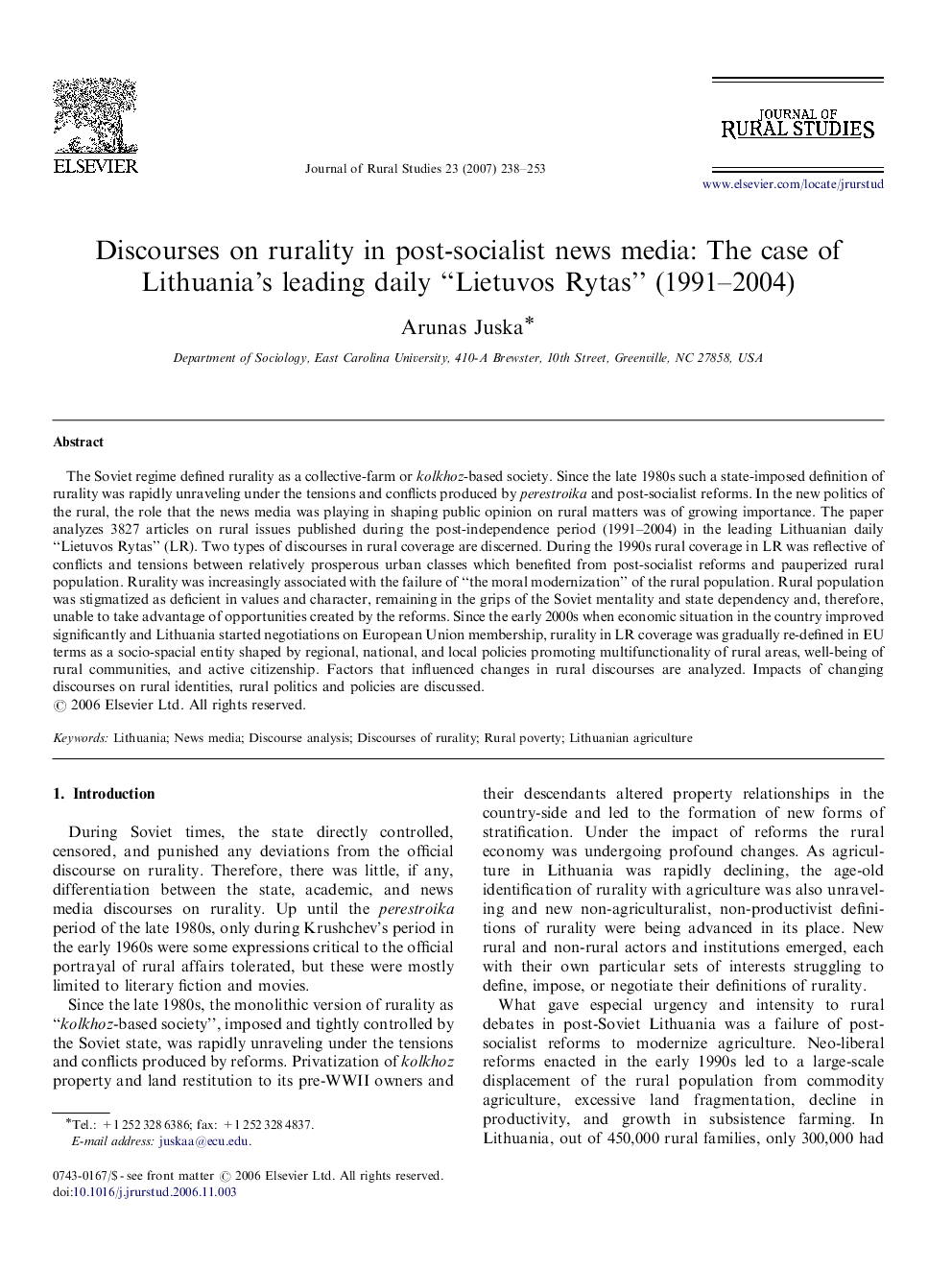| Article ID | Journal | Published Year | Pages | File Type |
|---|---|---|---|---|
| 92661 | Journal of Rural Studies | 2007 | 16 Pages |
The Soviet regime defined rurality as a collective-farm or kolkhoz-based society. Since the late 1980s such a state-imposed definition of rurality was rapidly unraveling under the tensions and conflicts produced by perestroika and post-socialist reforms. In the new politics of the rural, the role that the news media was playing in shaping public opinion on rural matters was of growing importance. The paper analyzes 3827 articles on rural issues published during the post-independence period (1991–2004) in the leading Lithuanian daily “Lietuvos Rytas” (LR). Two types of discourses in rural coverage are discerned. During the 1990s rural coverage in LR was reflective of conflicts and tensions between relatively prosperous urban classes which benefited from post-socialist reforms and pauperized rural population. Rurality was increasingly associated with the failure of “the moral modernization” of the rural population. Rural population was stigmatized as deficient in values and character, remaining in the grips of the Soviet mentality and state dependency and, therefore, unable to take advantage of opportunities created by the reforms. Since the early 2000s when economic situation in the country improved significantly and Lithuania started negotiations on European Union membership, rurality in LR coverage was gradually re-defined in EU terms as a socio-spacial entity shaped by regional, national, and local policies promoting multifunctionality of rural areas, well-being of rural communities, and active citizenship. Factors that influenced changes in rural discourses are analyzed. Impacts of changing discourses on rural identities, rural politics and policies are discussed.
